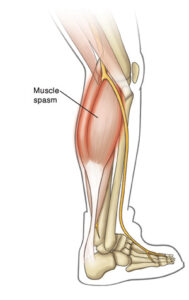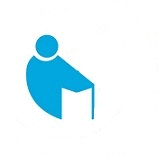 A muscle cramp is a sudden and involuntary contraction of one or more of your muscles. If you’ve ever been awakened in the night or stopped in your tracks by a sudden charley horse, you know that muscle cramps can cause severe pain. Though generally harmless, muscle cramps can make it temporarily impossible to use the affected muscle.
A muscle cramp is a sudden and involuntary contraction of one or more of your muscles. If you’ve ever been awakened in the night or stopped in your tracks by a sudden charley horse, you know that muscle cramps can cause severe pain. Though generally harmless, muscle cramps can make it temporarily impossible to use the affected muscle.
Long periods of exercise or physical labor, particularly in hot weather, can lead to muscle cramps. Some medications and certain medical conditions also may cause muscle cramps. You usually can treat muscle cramps at home with self-care measures.
Symptoms
Most muscle cramps develop in the leg muscles, particularly in the calf. Besides the sudden, sharp pain, you might also feel or see a hard lump of muscle tissue beneath your skin.
Causes
Overuse of a muscle, dehydration, muscle strain or simply holding a position for a prolonged period can cause a muscle cramp. In many cases, however, the cause isn’t known.
Although most muscle cramps are harmless, some may be related to an underlying medical condition, such as:
- Inadequate blood supply.Narrowing of the arteries that deliver blood to your legs (arteriosclerosis of the extremities) can produce cramp-like pain in your legs and feet while you’re exercising. These cramps usually go away soon after you stop exercising.
- Nerve compression.Compression of nerves in your spine (lumbar stenosis) also can produce cramp-like pain in your legs. The pain usually worsens the longer you walk. Walking in a slightly flexed position — such as you would use when pushing a shopping cart ahead of you — may improve or delay the onset of your symptoms.
- Mineral depletion.Too little potassium, calcium or magnesium in your diet can contribute to leg cramps. Diuretics — medications often prescribed for high blood pressure — also can deplete these minerals.
Risk factors
Factors that might increase your risk of muscle cramps include:
- Older people lose muscle mass, so the remaining muscle can get overstressed more easily.
- Athletes who become fatigued and dehydrated while participating in warm-weather sports frequently develop muscle cramps.
- Muscle cramps also are common during pregnancy.
- Medical conditions.You might be at higher risk of muscle cramps if you have diabetes, or nerve, liver or thyroid disorders.
Treatment
You can usually treat muscle cramps with self-care measures. Your doctor can show you stretching exercises that can help you reduce your chances of getting muscle cramps. Making sure you stay well-hydrated also can help. For recurrent cramps that disturb your sleep, At Alimran Medical Center, we may recommend any of the following treatments
Regenerative medicine treatment (Prolotherapy)
Neurons stimulation
Repetitive Transcranial Magnetic Stimulation, rTMS
Transcranial direct current stimulation (tDCS)
- Electrical stimulation
- Short and long wave
- Laser therapy
- Ultrasonic therapy
- Magnatic therapy
- Exercises
Chiropractic
